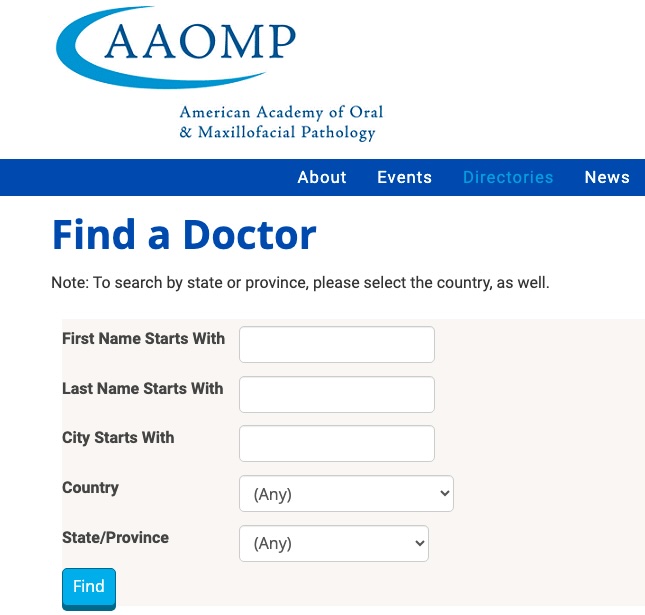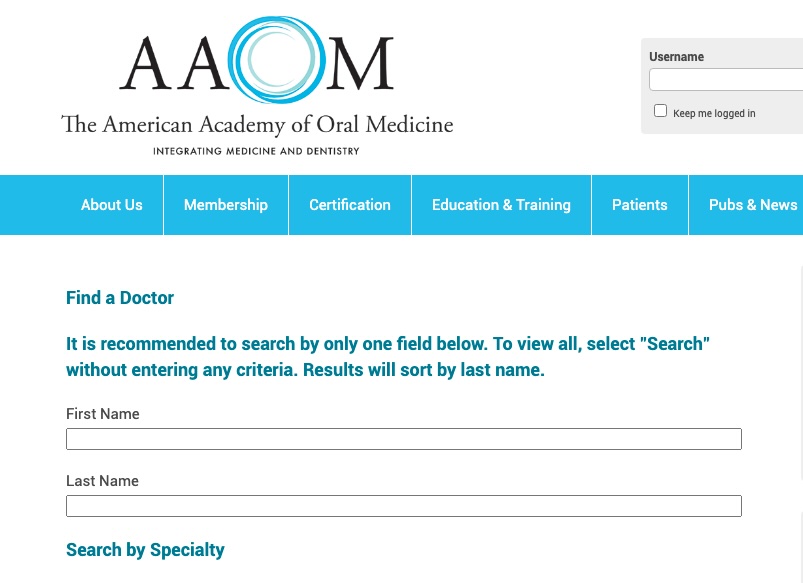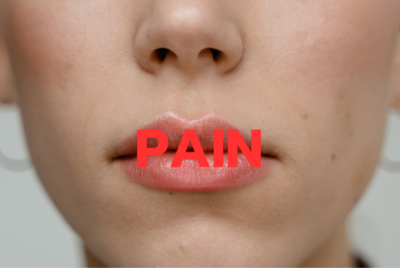When we have trouble with our mouth, our first stop is usually a dentist. Dentists are the medical doctor’s equivalent for the mouth. They care for our teeth, gums, and related parts of the mouth. Dentists are also well placed to notice if we have certain health issues, like anemia, gastrointestinal disorders like acid reflux, oral cancer, diabetes, and more. Our mouth can reveal so much about our health. But some patients need a dental professional who has more expertise to deal with other oral problems – like burning mouth syndrome. These professionals are oral medicine specialists or oral and maxillofacial pathologists.
What are oral medicine specialists?
“The easiest way to think about an oral medicine specialist is we’re the dermatologists of the mouth,” explained Alessandro Villa, DDS, MPH, PhD, in an interview. Dr. Villa is an oral medicine specialist who established the oral medicine program within Baptist Health South Florida. “We see patients with autoimmune diseases, pre-cancers, dry mouth complications from cancer therapy, and neurosensory disorders, including burning mouth syndrome.”
Oral medicine is a post-graduate program after dental school. Graduates deal with diseases of the mouth that aren’t related to teeth. Many people haven’t heard about oral medicine specialists, but the specialty isn’t new – the American Academy of Oral Medicine was established in 1945. There are only six programs in the U.S and three in Canada though. That means there aren’t as many oral medicine specialists as we might hope for. Add to that, according to this very small study of just one oral medicine program, not all graduates work in private practice. This can make it all the more challenging to find an oral medicine specialist in your area.
What are oral and maxillofacial pathologists?
Oral and maxillofacial pathologists identify and manage diseases that affect the oral and maxillofacial (face and jaw) regions but there is a difference between them and oral medicine specialists. This journal article defines it like this: “Oral medicine represents the clinical arm of oral pathology and deals with diagnosis and treatment of soft-tissue lesions, whereas oral histopathology is the specialty area that focuses on the microscopic diagnosis of soft- and hard-tissue lesions of the head and neck area.” That said, oral and maxillofacial pathologists do work with patients who have burning mouth syndrome.
There are 14 oral and maxillofacial pathology programs in the U.S. and three in Canada.
How to find a specialist
The first step would be to ask your doctor or dentist if they can refer you to an oral medicine specialist. Referrals are generally better than reaching out on your own because they’re an introduction and your doctor or dentist can explain why you should be seen. You might need a referral for insurance to cover the cost of the visit.
If you can’t get a referral, you can search on your own. The American Academy of Oral Medicine has a worldwide data base of dentist professionals by specialty. You can access that page here. You check off which specialist you’re looking for and then you can search by country or narrow it down even more by address. The American Academy of Oral & Maxillofacial Pathology also has a worldwide database. You can find that page here.


Preparing for that first visit with an oral medicine specialist or oral and maxillofacial pathologist
People who live with BMS often see many healthcare professionals as they try to find help for their pain. “It’s often misdiagnosed as candidiasis, maybe canker sores, or geographic tongue,” Dr. Villa said. “These poor patients come to us and they’re desperate. Not only do they not have the right diagnosis, but they’ve been through several treatments that were not necessary. They arrive at a point where they don’t trust the physician anymore because they were disappointed so many times.”
Given the many disappointments, it’s not surprising if patients head into their first appointment with low expectations and this can affect communication. If you’re going for a first appointment with an oral medicine specialist or an oral pathologist, there are some steps you can take to make it as successful as possible. You’ve likely thought of many of them, but there may be a tip that you haven’t.
- Arrive early, about 15 minutes or so. Usually there is extra paperwork before a first appointment.
- If you have a referral, be sure to bring it with you.
- If the appointment is covered by insurance, don’t forget to have that information with you.
- Bring a copy of your medical records if you can. If you don’t have them, write out your medical history as best as you can remember it. Other health issues are important for the specialist to know because they could relate to your pain. Write down in chronological order when/how the pain started and what’s happened since.
- Provide a list of the treatments you’ve tried, including over-the-counter products, natural products, alternative therapies, and home remedies. It’s also helpful if you can note down what effect, if any (including side effects that made you stop.
- Write down your concerns and questions so you don’t worry about forgetting anything.
- Bring a friend or family member who can act as a second pair of ears and eyes, acting as a patient advocate for you.
- Ask if you can record the conversation if you have to go alone, so you can play back it back if you can’t remember something.
- Ask for clarification if you don’t understand something.
- Before you leave, make sure you understand what the next steps are.
Keep trying
Once you find someone who does understand burning mouth syndrome, you still might not get relief because there aren’t any cures for the condition. But it does help to have a healthcare professional who knows that BMS is real and that it can have a significant impact on your daily life.
Tags: dental professional, oral and maxillofacial pathologists, oral medicine specialists